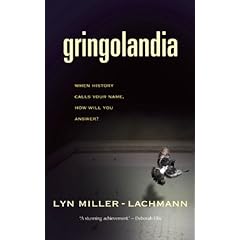Lyrics: Harry Emerson Fosdick, 1930.
Music: CWM RHONDDA by John Hughes, 1907.
Theme: Pray also for me, that whenever I open my mouth, words may be given me so that I will fearlessly make known the mystery of the gospel, for which I am an ambassador in chains. Pray that I may declare it fearlessly, as I should. Ephesians 6:19-20.
October 5, 1930, saw the celebration of the first service at Riverside Church, New York City. To mark the occasion, Harry wrote the hymn “God of Grace and God of Glory.”
God of grace and God of glory,
On Thy people pour Thy power.
Crown Thine ancient church’s story,
Bring her bud to glorious flower.
Grant us wisdom, grant us courage,
For the facing of this hour,
For the facing of this hour.
Lo! the hosts of evil ’round us,
Scorn Thy Christ, assail His ways.
From the fears that long have bound us,
Free our hearts to faith and praise.
Grant us wisdom, grant us courage,
For the living of these days,
For the living of these days.
Cure Thy children’s warring madness,
Bend our pride to Thy control.
Shame our wanton selfish gladness,
Rich in things and poor in soul.
Grant us wisdom, grant us courage,
Lest we miss Thy kingdom’s goal,
Lest we miss Thy kingdom’s goal.
Set our feet on lofty places,
Gird our lives that they may be,
Armored with all Christ-like graces,
In the fight to set men free.
Grant us wisdom, grant us courage,
That we fail not man nor Thee,
That we fail not man nor Thee.
Save us from weak resignation,
To the evils we deplore.
Let the search for Thy salvation,
Be our glory evermore.
Grant us wisdom, grant us courage,
Serving Thee Whom we adore,
Serving Thee Whom we adore.
Fosdick became a central figure in the conflict between fundamentalist and liberal forces within American Protestantism in the 1920s and 1930s. While at First Presbyterian Church, on May 21, 1922, he delivered his famous sermon “Shall the Fundamentalists Win?â€, in which he defended the modernist position. In that sermon, he presented the Bible as a record of the unfolding of God’s will, not as the literal Word of God. He saw the history of Christianity as one of development, progress, and gradual change. To the fundamentalists, this was rank apostasy, and the battle lines were drawn.”
It’s interesting that I’ve been reading Chaim Potok’s The Chosen this week which presents a fictional picture of the same basic controversy in almost the same time period (1940’s) within Orthodox Judaism.
Whether you agree with his theology or not, it’s a rather good and sticky hymn. (As in, it sticks in my memory.) “Grant us wisdom, grant us courage . . . ”
Sources:
John MacArthur: Harry Emerson Fosdick and the Emerging Theology of Early LIberalism.
Wikipedia: Harry Emerson Fosdick
Christian History: Harry Emerson Fosdick Dedicated Riverside Church








